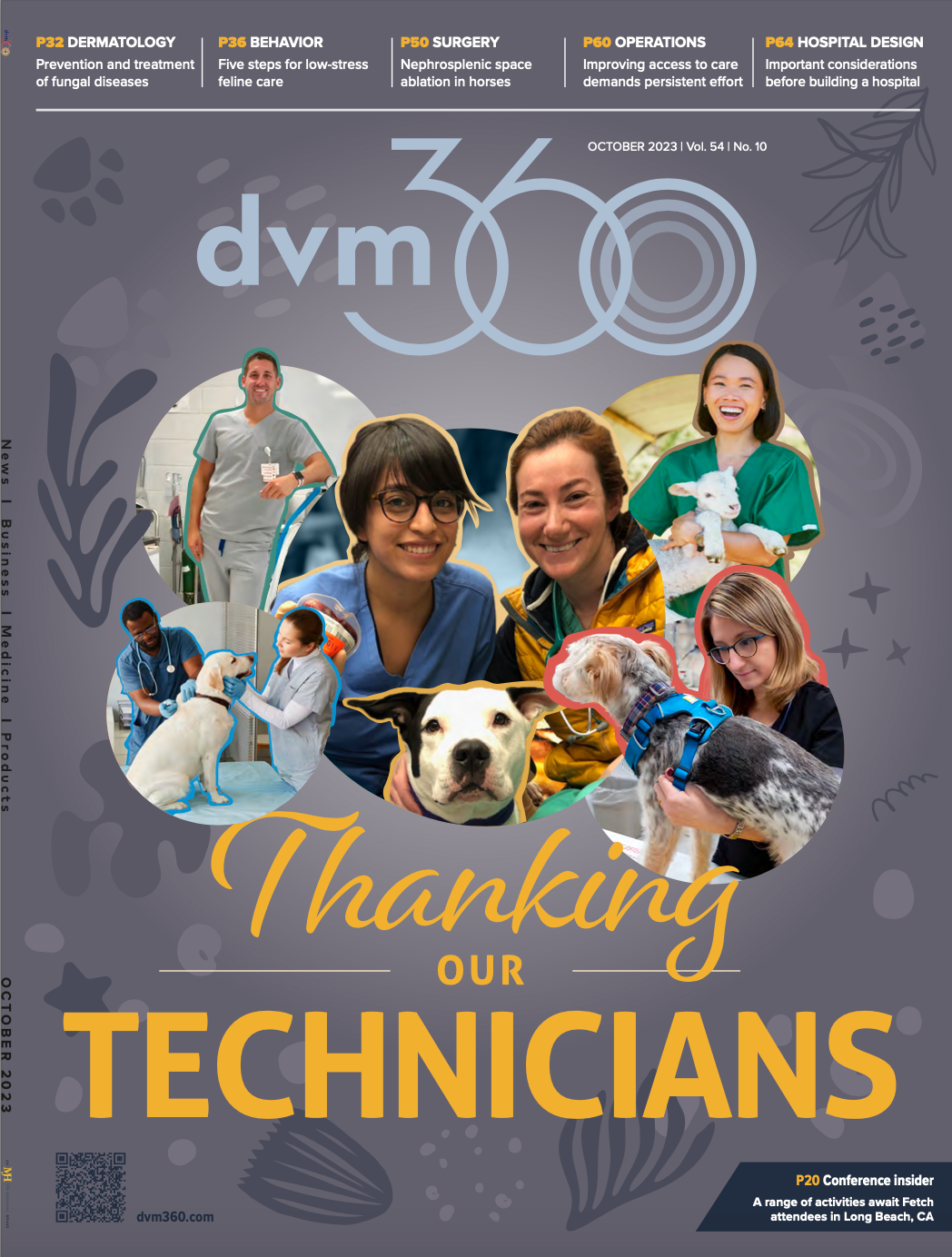Top 5 culture killers in a practice
And how to overcome them to promote your work environment and wellbeing
Coloures-Pic / stock.adobe.com

We all want to find that perfect clinic, the one where we are appreciated and made to feel good about our hard work. According to the US Dept of Labor Blog,1 59% of workers surveyed reported workplace stress. We hear buzzwords like “unicorn clinic” and we look at our own situation and wonder what can be done to make our jobs better. It should, of course, be noted that unicorns do not exist, and our perception of a situation is very powerful. Perhaps it is helpful to spend time thinking about what is killing the culture at most practices. Once we define these culture killers, we have a much better chance of addressing them and creating a more utopian situation of our own.
Here are the top 5 culture killers:
Negativity
Negativity is prevailing. In fact, the memory of negative experiences is more powerful than the memory of other experiences. Negative occurrences are even more likely to be remembered by people (and by pets—but that is another important topic!). Characterized by complaints and criticisms, the unhappiness in a negative workplace is like a poisonous gas that seeps into everything but even worse, because it is contagious and sets a tone for the workplace that makes you not even want to come in. According to Art Markman, PhD, a cognitive psychologist and author, negative information is a sign that something needs to change while positive information indicates that we are doing something right. Negative information sticks in our memory more to encourage us to make the change.2 He thinks that this tendency can be helpful, but it can also mean that our minds overrepresent negative thoughts compared to positive thoughts. If you are an antelope, it is critical you remember that a leopard scared you at the watering hole, but for us, harping on that grumpy client does not serve us as well.
Lack of training
Being asked to do a job for which you are unprepared sets you up for failure and starts you on a path of self-loathing. Achievement is one of the strongest motivators we have. Everyone likes to finish a task well. Failure is not an inherently negative thing. Failure and learning from the failures are important steps, but repetitive failure because you are ill prepared is not constructive because it does not move you toward an ultimate success. Like a cat chasing a laser pointer but never completing the hunting sequence resulting in abnormal repetitive behaviors,3 we all need success. A job well done “completes our hunting sequence” and on a very basic level gives us a sense of peace and safety. Markman says the human brain is a “prediction engine” and if we do not know for sure how to do something, we cannot be certain that our actions will produce the desired outcome.
Lack of clear expectations
Maybe you have been well trained to perform your job, but don’t really know what your job is. Lack of direction damages our sense of purpose. Not knowing what is expected of you can lead to anxiety and uncertainty, even decision fatigue, according to Jill Bornstein, the founder of Upnext Leadership Coaching. In an article she wrote for Forbes magazine,4 she explains that managers are attempting to give autonomy to their employees by not providing clear expectations, but instead of feeling liberated, employees feel confused.
Gossip
It is easy to engage in gossip in the workplace (and in fact, takes an active effort to avoid it). Because we are social creatures, gossiping makes us feel like we are “in the know” and a part of the crowd…until we are the object of the gossip. Markman says, “Negative gossip about others may make us feel good, because it gives us a sense that our own social standing may be rising at their expense. That isn’t a reaction we are likely to be proud of, but it is a common human reaction.” Even if you never are the object of the gossip, there is a part of your brain that knows you could be and erodes your trust in those around you. It fosters a “backstabbing” mentality and distracts everyone on the team. Time is spent thinking about what the gossip will be next and then productivity is impacted when the gossip is spread.
Lack of relationships
Relationships are important to human beings, even if we don’t want to admit it. Studies have shown that human being’s behavioral response to stress goes beyond fight or flight and is more likely to be “tend and befriend” (especially among women which account for more than half of our industry).5 The researchers think that it could be an evolutionary adaption related to our attachment-care giving system which would make sense since veterinary professionals are in the industry because they are caregivers. We need our network, so team building and relationship building among our team is critical to our own wellbeing.
Killing the culture killers
What can we do? A LOT.
Put a smile on your face, even if you don’t feel like it all the time. Some schools of thought call this the “acting as if” prescription. Psychologist Alfred Adler suggested to his patients to act as if they were already the person they would like to be. He postulated that as people begin to act differently, they will begin to feel differently.6 It works! Resist the urge to complain out loud and never criticize coworkers. Report performance issues quietly to management.
If you feel you have not been trained, open your mind to opportunities to learn. Speak with your manager and coworkers to help guide you. Be willing to jump in and learn technical skills. Be the person willing to go the extra mile to ask questions. If you cannot find what you need, don’t give up. Your personal success depends on it, and you are worth the extra effort.
If you are not sure of your job expectations, communicate with your supervisor. Stay professional and not accusatory. You want their help. You both want the job to work. Finding a new job is stressful, just like finding a new employee. It is the best interest of all involved to make the relationship work out.
Gossip is fun. It has the allure of reality TV. But when you realize how destructive it is in the workplace, you want to stop it. Just walk away. Once your coworkers realize you do not want to participate, they will move on. They may even stop it completely because your behavior and commitment to creating a great culture can be inspirational. Deep down we all know we should not gossip.
Take that extra minute to make a friend or 2 among your team. It is nice to know someone has your back and will remind you of things you forgot or make you laugh.
At the end of the day, your mental health is more important to you than to anyone else. Advocate for yourself. Make the effort to effect change. It could be that your clinic is a poor fit for you but give yourself the best chance of success by investing time and effort into your own culture.
References
- Williams TM. The intersection of work and wellbeing, for all workers. US Department of Labor Blog. March 30, 2022. Accessed July 31, 2023. https://blog.dol.gov/2022/03/30/the-intersection-of-work-and-wellbeing-for-all-workers
- Markman A. How does disgust affect memory? Smart Thinking Book. November 23, 2015. Accessed July 31, 2023. http://www.smartthinkingbook.com/2015/11
- Kogan LR, Grigg EK. Laser light pointers for use in companion cat play: Association with guardian-reported abnormal repetitive behaviors. Animals (Basel). 2021; 11(8):2178. doi: 10.3390/ani11082178
- https://www.forbes.com/sites/forbescoachescouncil/2023/06/05/how-a-lack-of-clear-expectations-leaves-employees-anxious-and-adrift/?sh=3afb084e5983
- Taylor SE, Klein LC, Lewis BP, Gruenewald TL, Gurung RA, Updegraff JA. Biobehavioral responses to stress in females: tend-and-befriend, not fight-or-flight. Psychol Rev. 2000;107(3):411-29. doi: 10.1037/0033-295x.107.3.411
- Watts RE, Peluso P, Lewis TF. Expanding the acting as if technique: an adlerian/constructive integration. J Indiv Psychol. 2005. https://www.researchgate.net/publication/237809318_Expanding_the_Acting_As_If_Technique_An_AdlerianConstructive_Integration
